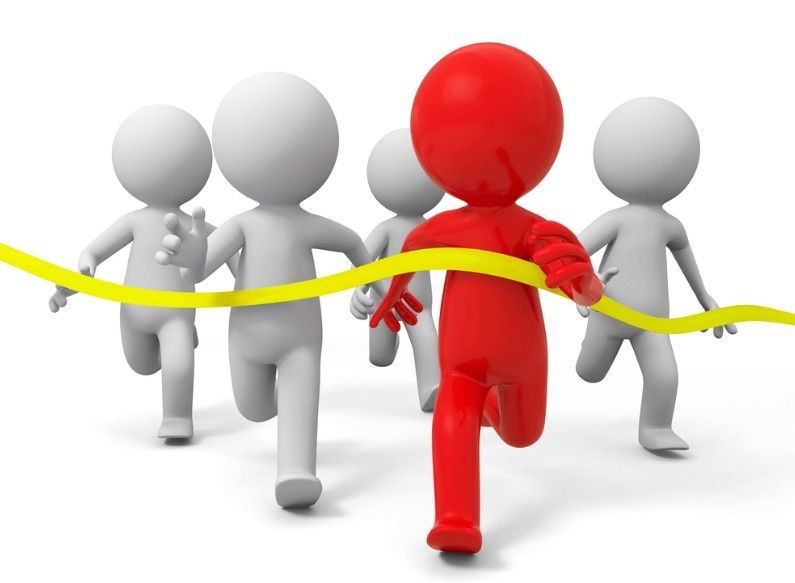How Important Is Speed in Selling?
August 14, 2025
When a client recently asked me if “speed” is important in selling, I was curious as to what inspired the question. “Well, you were just here on Monday,” he explained, “and now you’re already back on Wednesday with a proposal. Does that make a difference in your market? Do you think it matters in my market, too?”
The answer to each of those questions is “Yes.”
“Yes, speed is important. Yes, it certainly makes a difference in my market, and, yes, I’m sure it does in your market.” For the record, it probably makes a difference in any market.
| Accelerating Company Growth
Phil Krone leads discussion on the question, “Why do customers buy from you?” in the ExpressWay to Growth Business Accelerator Workshop scheduled for the mornings of November 13, 14, and 15 in Oak Brook, Illinois. Led by top CEO-peer-group facilitator and author, Nick Arvis, the workshop helps business owners, CEOs, and presidents create a practical growth strategy they can put to work right away. Learn more and register at the link above. |
If you’re in a business-to-business consultative selling market and you don’t feel a real need for speed, step back and take stock. Speed does matter. Not simply because in business faster is almost always better but because of why faster is almost always better. “Sooner rather than later” delivers more value to your prospect or client. That in turn generates more value for you. And delivering value within the sales process is what consultative selling is all about, at least in our experience. The good news is that delivering value often starts with something simple, such as saving time fora prospect and for yourself.
Here are just a few situations in which speed in consultative selling can make adifference-and why:
- Responding to inquiries-before your competition does
- Getting in the door for a first meeting-to learn whether you can help at all and, if so, how
- Building trust-for example, and being seen as an expert
- Completing proposals and then presenting them-first, to get the sale, and, second, to help the prospect better understand the challenges involved
- Beginning an assignment once you have it-to begin delivering more value quickly
- Completing an assignment-well, that’s the whole idea.
In each of those situations, speed builds trust. Stephen R. Covey, in fact, popularized that thinking when he wrote, “Business is done at the speed of trust.” Further, he wrote that it’s the “one thing that changes everything.” You can’t get much more important than that.
If you’re in a transactional, or “simple,” sales environment-consumer retail, for instance-speed also matters but in a different way. Speeding up atransactional sale is usually the best way to go-more sales faster. But in abusiness-to-business, “complex” sales environment, as we teach in our consultative selling course FOCIS®, it’s necessary to slow down the sales process to speed up the sales cycle. What does that mean?
Taking the extra time to “out-discover” your competition pays off. Learning what you need to know to help the prospect see the value of your product or service is critical. The way to do that is to ask the right questions in the right proportion at the right time. You gain an information advantage that, if used skillfully, is much more important than most sales people realize. Unfortunately, most sales people struggle simply to gain an information advantage, let alone use it.
Better discovery allows you to show the prospect the value of your service or product. That’s much better than telling your prospect how valuable it is.
Not surprisingly, this thinking is counterintuitive. In fact, only about 20 percent of sales people know how to do this but those 20 percent usually account for 70 to 80 percent of a company’s sales. In other words, the very best salespeople slow down the sales process to out-discover the competition, which increases their chances of getting a sale. That speeds up the sales cycle and brings in more business.
Here’s an example. A new client had just begun our FOCIS® course and had scheduled a 20-minute, out-of-town meeting with a prospect. Such ashort meeting, especially if travel time and money are involved, just didn’t seem worth it to us. When he asked us to help him prepare, we suggested that he schedule a 90-minute meeting (he had a cooperative prospect) that would slow down the sales process but help him get the information he needed to make the prospect’s decision-making process move faster. At the beginning of the meeting, the prospect was satisfied with his current national provider. By the end, however, he was highly dissatisfied because he realized he didn’t know what he didn’t know about what kind of value to expect from this kind of service provider. When the original contract expired, our client got the business.
Twenty minutes would have been a “hi-how-are-you-nice-to-meet-you” meeting during which our client would have learned nothing to help him make the sale. Slowing down the sales process, however, gave him virtually everything he needed. More important, it gave the prospect everything he needed to see the real value our client offered.
Another way to slow down the sales process to speed up the sales cycle is to show up on time. Showing up early is even better. The advantage is that your prospect just might usher you in sooner, which gives you more time to do discovery and to build an information advantage. How do you know how early to show up?
Try operating on “Lombardi Time.” Legendary Green Bay Packers football coach Vince Lombardi expected his team and staff to be 15 minutes early for everything. Arrive for an 8 a.m. practice at 8 a.m., for example, and you weren’t just late, in Lombardi’s view. You were 15 minutes behind. Maybe that’s one reason the Packers were ahead of the pack so much during Lombardi’s reign.
So ingrained is that philosophy in the Packers organization that the clock above the north gate at Lambeau Field is actually set for Lombardi time.
How do you know if you should have a speedy transactional (simple) sales process or a consultative (complex) one? If the second column describes your selling experience, you need a consultative sales process.
| Simple Sale or Complex? | Simple | Complex |
| Number of calls needed | One | Multiple |
| Risk to buyer | Low | High |
| Buyer’s risk tolerance | High | Low |
| Decision-maker | Individual | Group |
| Seller present at sale | Yes | No |
| Relationship implied by sale | No | Yes |
Phil Krone is president of Productive Strategies, Inc., a marketing and management consulting firm specializing in consultative sales training, lead generation and appointment setting, and marketing and marketing communications. Phil can be reached at 847-446-0008 and pkrone@productivestrategies.com.
The post How Important Is Speed in Selling? appeared first on Productive Strategies, Inc..










